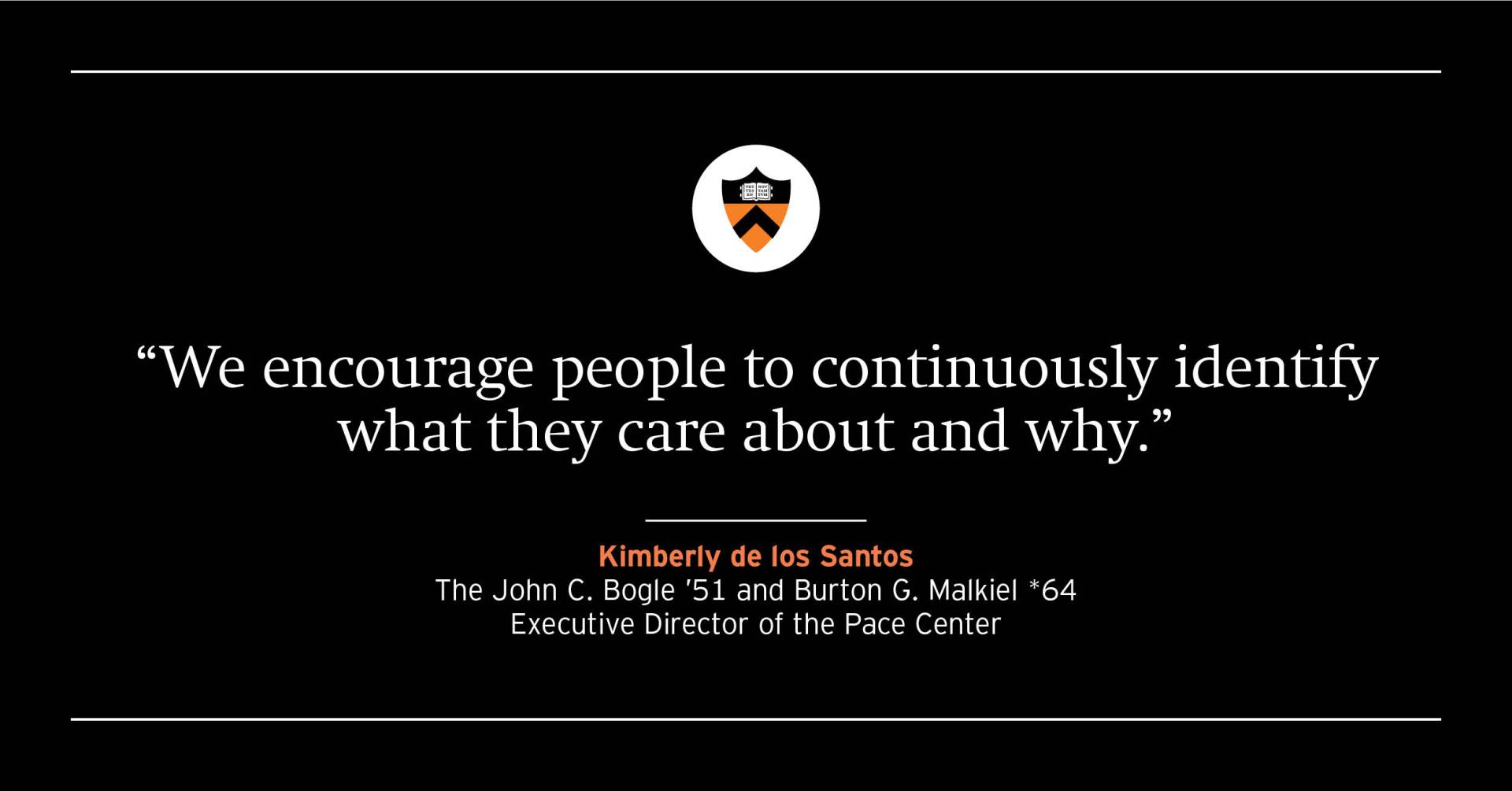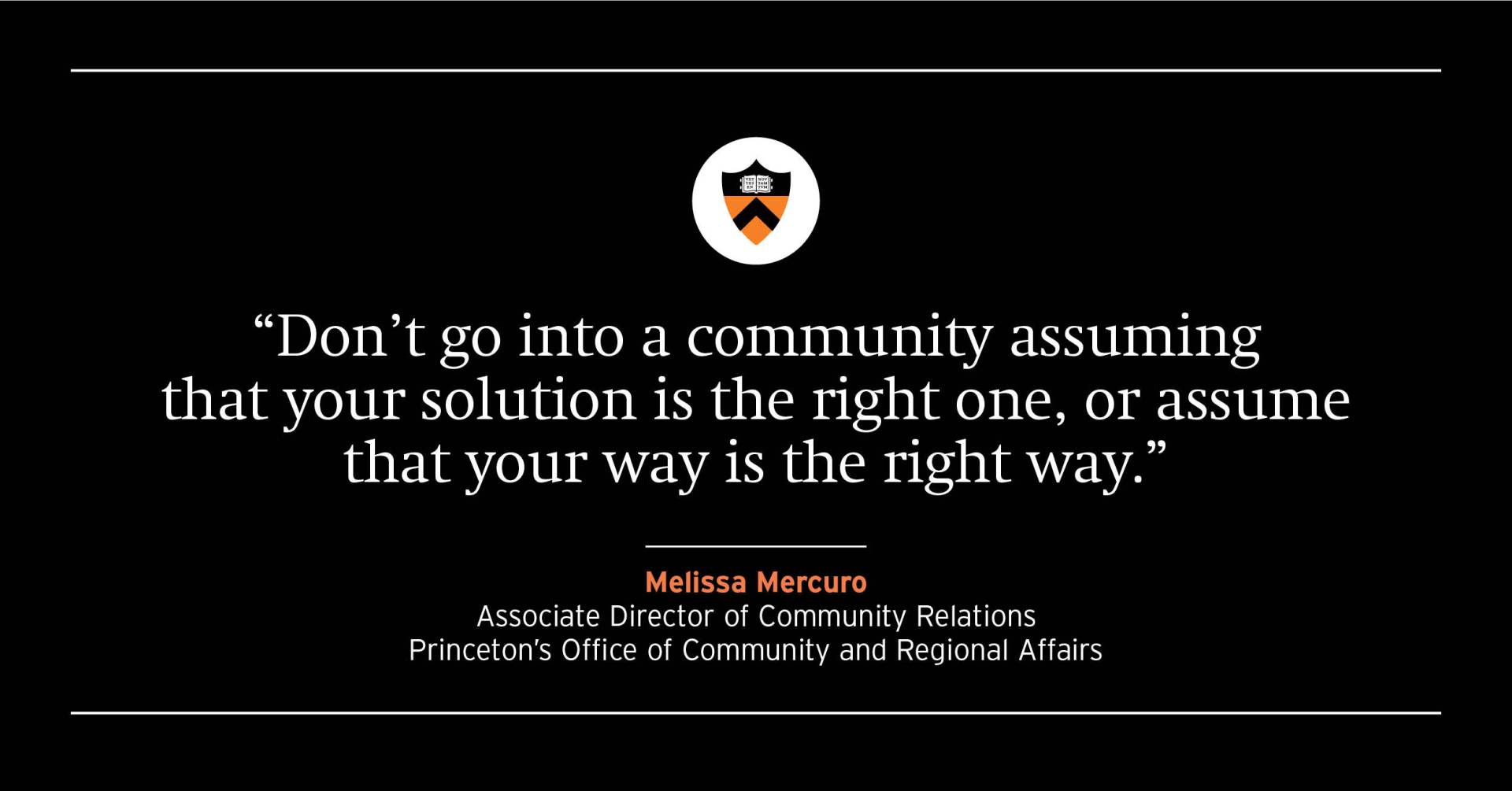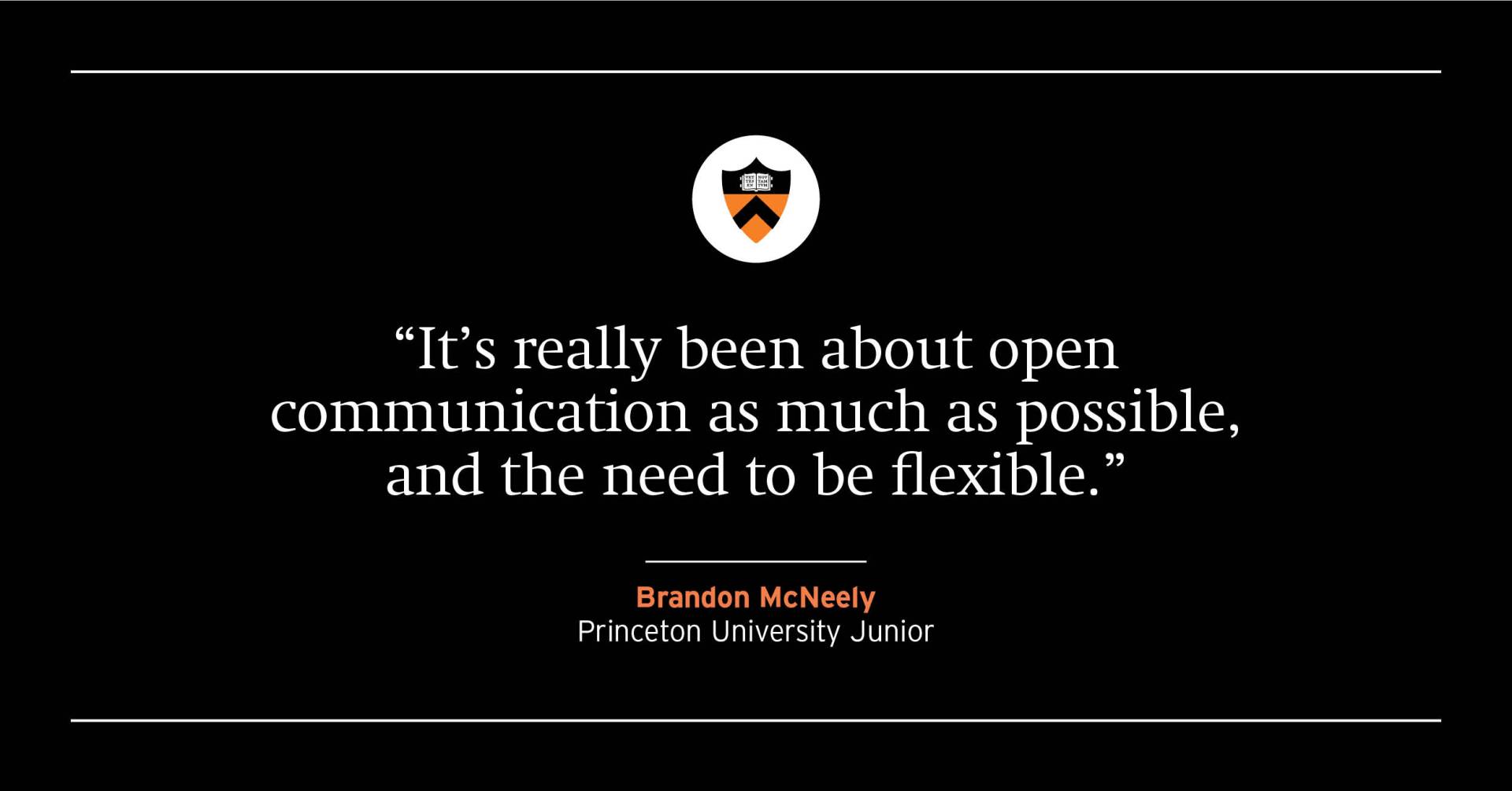Princeton University’s Pace Center for Civic Engagementhas given serious and sustained thought to best practices for doing community service, much as organizations like Charity Navigator have encouraged donors of money to be more intentional about their giving.
Working with centers and departments across campus, the center prepares undergraduate and graduate students to serve well by making meaningful connections through learning, experience and reflection — an ethos that can help guide anyone interested in public service and volunteer work.
Here are six ways to engage in community service with purpose and intention, from the center, its University partners, and Princeton students making impact based on its foundational principles. The John H. Pace Jr. ‘39 Center for Engagement Field Guide to Service offers additional guidance on community service for volunteers, activists, voters and others.
1. Identify your values and skills
Understanding both the values and the skills that you bring to the table will help ensure that your service and civic engagement efforts are realistic and responsive, and can also help you communicate more effectively.
Some questions to ask:
- What motivates you?
- What was a time when you felt called to action, and what did you do?
- What skills do you have that would benefit your work?
- What skills do you need to improve on?
- What resources are available, and who do you know who could help you?
- Why are you seeking to engage in this project, group or activity?
“We encourage people to continuously identify what they care about and why,” says Kimberly de los Santos, the John C. Bogle ’51 and Burton G. Malkiel *64 executive director of the Pace Center “The purpose of knowing yourself and living truer to your values is to be able to better contribute to a world that is better for all of us.”

2. Understand the community
To serve well and with impact, you’ll want to become informed about the community you are seeking to serve, its history and what issues are going on. Look to connect with established nonprofits, attend government meetings, read local news, talk with faith leaders and generally get to know people.
“It’s important to know what the community’s needs are beforehand, because you can over-resource some communities or under-resource some communities,” says Duncan Harrison, Jr., assistant director of regional affairs in the Office of Community and Regional Affairs, which serves as the primary liaison between the University and the communities in which it resides.
“My grandfather would always say, ‘You cannot teach what you don’t know, and you cannot show where you won’t go,” Harrison said. “When you’re entering a community, you want to be an explorer of value. You want to bring value, not really looking to take anything or get anything in return, but to help that community and really get to learn and understand that community.”

3. Align your vision with the needs of the community, and build your team
Acts of community service and civic engagement are made stronger when people come together, combine their assets and work toward a common vision. Asking these questions will help ensure that your service and civic engagement efforts have a positive impact:
- What is the issue you hope to address through your work?
- What is the community need your work will address, and what does this issue look like in real time for individuals and the community?
- What individuals and groups are already working on this issue?
- What resources will you use, and where will they come from?
“Don’t go into a community assuming that your solution is the right one, or assume that your way is the right way,” says Melssa Mercuro, associate director of community relations with the Office of Community and Regional Affairs. “Learning the history of the community and the different dynamics that go on is vital.”
4. Be flexible
Community needs and your ability to help fulfill them can change, especially in the midst of COVID-19.
Prior to the pandemic, Madison Mellinger, a junior studying public affairs and environmental studies at Princeton, and Kelton Chastulik, a graduate of the class of 2021, teamed up to start a holiday book drive to support local youth organizations in their hometown of Chambersburg, Pennsylvania.
Mellinger and Chastulik paused their efforts at the start of the pandemic, and have since leaned in to listening deeply to reimagine how to continue the project, using lessons learned through their leadership roles with the Pace Center’s Student Volunteers Council.
“We are always looking to donate more books to more places, but this year I think the biggest goal is just to accomplish the project safely,” said Mellinger.
To do so, the team transitioned from having high school and community volunteers pick up book donations in-person to collaborating with local businesses and organizations to host book drop-off boxes instead.
5. Build and nurture relationships
Effective service and civic engagement involve building equitable partnerships and relationships, grounded in open communication, accountability and acknowledgement of power dynamics.
For Brandon McNeely, a junior in the School of Public and International Affairs, communication has been a key part of his experience with the Young Scholars Institute (YSI), a nonprofit learning center in Trenton, New Jersey, that provides educational, cultural and recreational activities for students in preschool through grade 12.
As volunteering with YSI has shifted from online tutoring at the start of the pandemic to in-person tutoring in the fall of 2021, it has meant keeping in touch regularly with YSI founder Jerri Morrison and the young people McNeely supports through the program.
“It’s really been about open communication as much as possible, and the need to be flexible,” McNeely says. “When we were virtual, students were often at home, so we’d allow them to have their cameras off if they needed to, things like that. When we went back in person, it was really important this semester to take extra time to talk with Mrs. Morrison. I’ve learned so much about what she has done for the city of Trenton and about her own experiences.”
6. Reflect to better understand the problems you are passionate to solve
In service and civic engagement, learning often comes from experiences with peers and community. Reflection — actively assessing what happened, why it matters and what to do moving forward — is critical to learning through service and civic engagement, and can spark new understanding.
Some questions to ask:
- What surprised you? What did you learn?
- How have your assumptions been challenged through your experience?
- What seems to be the root cause, or causes, of the social issue you’re addressing?
- What would you like to learn more about?
Tara Carr-Lemke, associate director with the Program for Community-Engaged Scholarship (ProCES), says reflection offers a way for people to amplify their understanding of the social issues facing the world today — poverty, inequality, systemic discrimination and climate change, to name just a few.
“When [students] engage with community members, organizational partners and practitioners who are actively seeking solutions to address these and other social issues, they have the opportunity to consider the theories they study within the classroom in potentially transformative ways,” she says. “These opportunities for observation, action and thoughtful reflection have the potential to shape their academic and professional pathways. New insights may spark new questions, which animate academic content, cultivate humility and enliven the spirit and mind for lifelong learning.”

Opportunities to engage
Now through Jan. 28, Princeton University staff, faculty, and undergraduate and graduate students can take part in Month of Service. Centered around understanding and addressing issues of food access and food insecurity, the month offers a range of activities both on and off campus, including virtual workshops and panel conversations, in-person service in the local community, a blanket donation drive and more. Beyond January, the Pace Center offers a range of opportunities for the University community.
